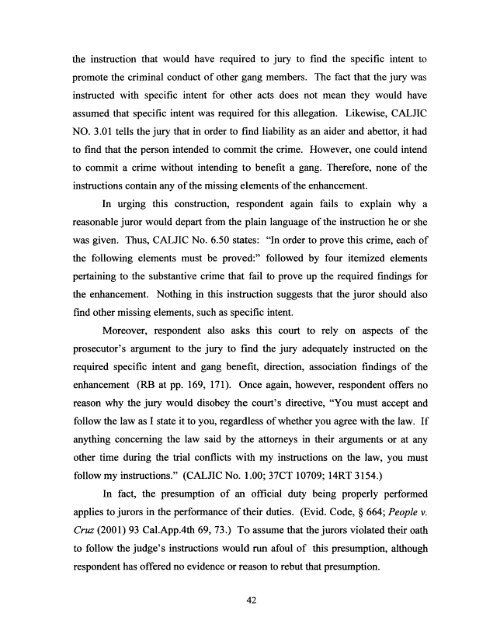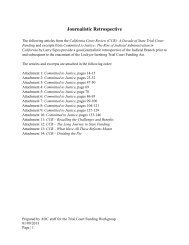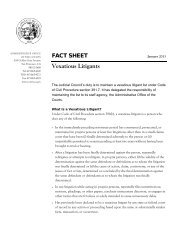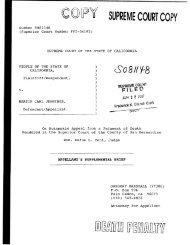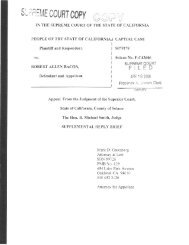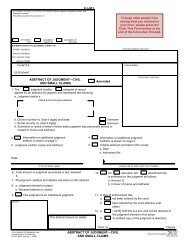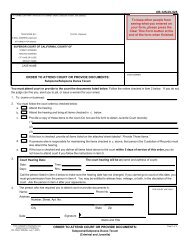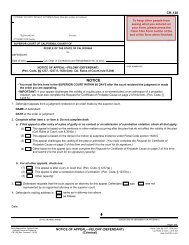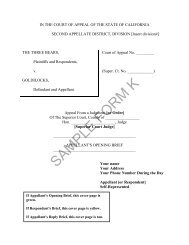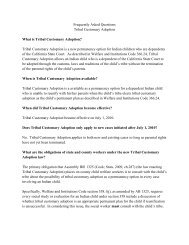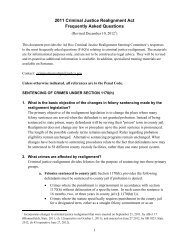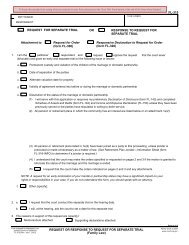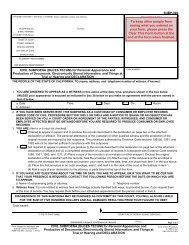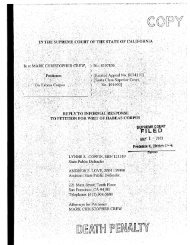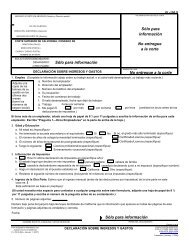Appellant, William Satele, Reply Brief - California Courts - State of ...
Appellant, William Satele, Reply Brief - California Courts - State of ...
Appellant, William Satele, Reply Brief - California Courts - State of ...
Create successful ePaper yourself
Turn your PDF publications into a flip-book with our unique Google optimized e-Paper software.
the instruction that would have required to jury to find the specific intent to<br />
promote the criminal conduct <strong>of</strong> other gang members. The fact that the jury was<br />
instructed with specific intent for other acts does not mean they would have<br />
assumed that specific intent was required for this allegation. Likewise, CALJIC<br />
NO. 3.01 tells the jury that in order to find liability as an aider and abettor, it had<br />
to find that the person intended to commit the crime. However, one could intend<br />
to commit a crime without intending to benefit a gang. Therefore, none <strong>of</strong> the<br />
instructions contain any <strong>of</strong>the missing elements <strong>of</strong>the enhancement.<br />
In urging this construction, respondent again fails to explain why a<br />
reasonable juror would depart from the plain language <strong>of</strong>the instruction he or she<br />
was given. Thus, CALJIC No. 6.50 states: "In order to prove this crime, each <strong>of</strong><br />
the following elements must be proved:" followed by four itemized elements<br />
pertaining to the substantive crime that fail to prove up the required findings for<br />
the enhancement. Nothing in this instruction suggests that the juror should also<br />
find other missing elements, such as specific intent.<br />
Moreover, respondent also asks this court to rely on aspects <strong>of</strong> the<br />
prosecutor's argument to the jury to fmd the jury adequately instructed on the<br />
required specific intent and gang benefit, direction, association findings <strong>of</strong> the<br />
enhancement (RB at pp. 169, 171). Once again, however, respondent <strong>of</strong>fers no<br />
reason why the jury would disobey the court's directive, "You must accept and<br />
follow the law as I state it to you, regardless <strong>of</strong>whether you agree with the law. If<br />
anything concerning the law said by the attorneys in their arguments or at any<br />
other time during the trial conflicts with my instructions on the law, you must<br />
follow my instructions." (CALJIC No. 1.00; 37CT 10709; 14RT 3154.)<br />
In fact, the presumption <strong>of</strong> an <strong>of</strong>ficial duty being properly performed<br />
applies to jurors in the performance <strong>of</strong> their duties. (Evid. Code, § 664; People v.<br />
Cruz (2001) 93 Cal.App.4th 69, 73.) To assume that the jurors violated their oath<br />
to follow the judge's instructions would run afoul <strong>of</strong> this presumption, although<br />
respondent has <strong>of</strong>fered no evidence or reason to rebut that presumption.<br />
42


